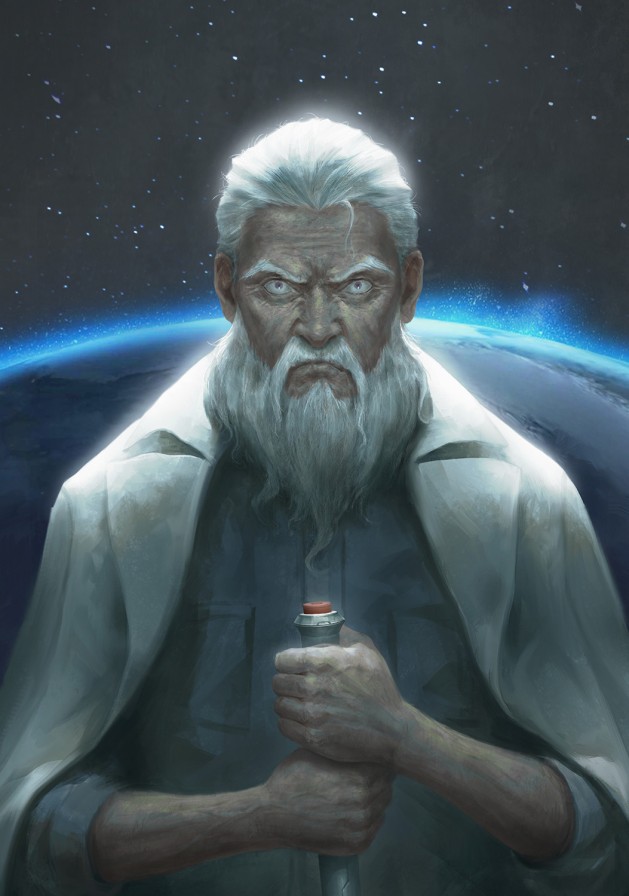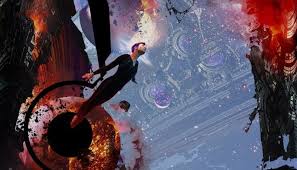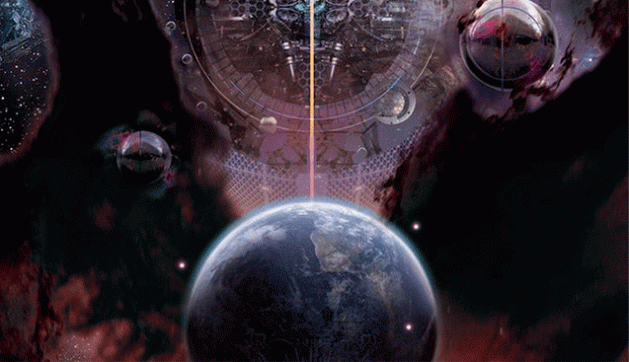Like many other SF authors, most of Cixin Liu’s characters are props for the reader to explore the setting and ideas. This isn’t helped by the characters’ Chinese names; I agree with spandrell that Chinese names just don’t trigger the proper associations for Westerners. However, Liu can produce more developed characters when necessary — for instance; he does make Ye Wenjie’s story powerful. He also manages, intriguingly, to bring to life the commissar Zhang Beihai. In many ways Zhang is a familiar type – the competent leader whom others look to in difficult situations, but…he’s a Communist political officer. Liu portrays Zhang’s devotion to “ideological work” and that work’s necessity and efficacy in a straightforward, positive manner. I find the explanation that Liu did this to atone for the sin of his brutally frank portrayal of the Cultural Revolution in The Three Body Problem tempting but inadequate. Ultimately Zhang’s job is only a mild cultural variant of the role of the priest or diversity officer.
Another notable character is Luo Ji. Luo Ji is one of five “wallfacers”, individuals granted total unquestioned authority by the United Nations, standing in for “humanity’s collective will” in typical Clarkean fashion, to do whatever it takes to forestall the Trisolaran invasion. The UN intends this tactic to counter the sophons, whose pervasive surveillance presumably doesn’t include mind-reading, at least in any useful sense. The UN selects five Wallfacers, all famous and powerful (and non-Chinese) individuals — except for Luo Ji, a burned-out grad student.
Luo Ji has no friends and, while not exactly unlucky with women, not much in the way of social or career prospects, and Liu clearly wants the reader to think he’s basically a loser. Then, as the Fifth Wallfacer, he’s handed unlimited authority and responsibility, at random. Luo Ji of course ends up being the hero, the Man Who Saves Humanity (by coming up with an effective deterrent scheme). The whole arc comes dangerously close to rehashing a particularly obnoxious trope — one pervasive in although by no means exclusive to East Asian pulp literature and comics — of the total loser who accidentally gets Power without effort and then Wins Everything, again without much effort. In raw form, this archetype is a blank reader surrogate, and Liu shows his chops by giving Luo Ji enough of a personality to be his own man, in narrative terms. He also makes the difficulties Luo faces after eating his figurative million-year mushroom rough enough to account for some real character growth, and to avoid being a straight power fantasy.

Luo Ji in Death’s End – from gramunion
Cheng Xin, whom we meet in Death’s End, is a feminine counterpart to Luo Ji who fails to maintain the human deterrent out of sheer lack of will. Both her failure and the election that determined her position as Luo’s replacement are pretty easy to read as criticisms of Western society and ideals. Chinese SF fans I’ve spoken to claim that Cheng is almost universally considered a villain in Chinese fandom. Rather than changing her ways, the story bends to fit Cheng Xin’s sensibilities, granting her first the chance to escape catastrophe through deus ex machina and at the very end by giving her a chance for sacrificial cooperation.



![{D24B5807-7660-4EBE-88C7-F8C9EB86A8F6}Img400[1]](https://sfoil.files.wordpress.com/2018/04/d24b5807-7660-4ebe-88c7-f8c9eb86a8f6img4001.jpg?resize=300%2C400)
